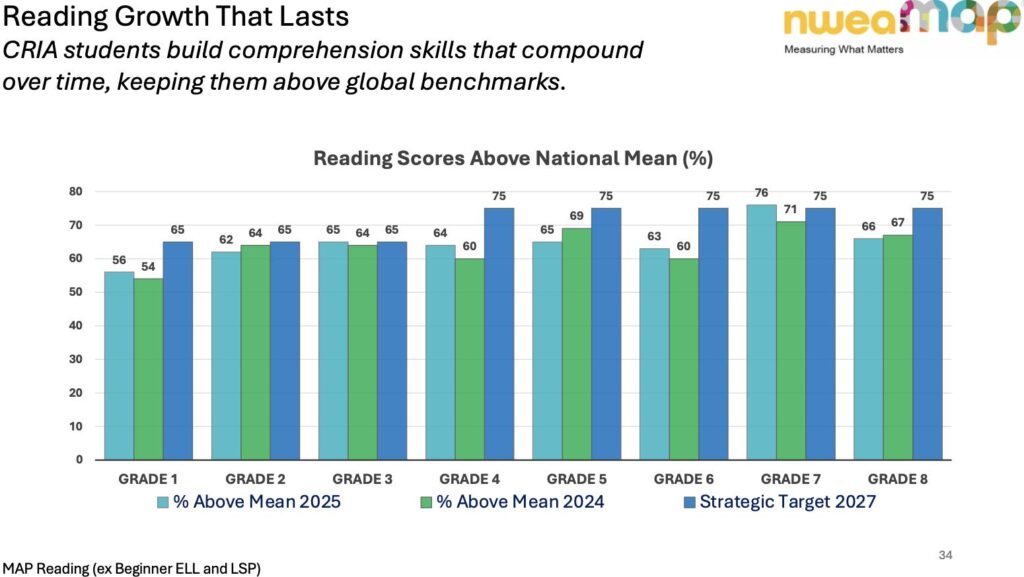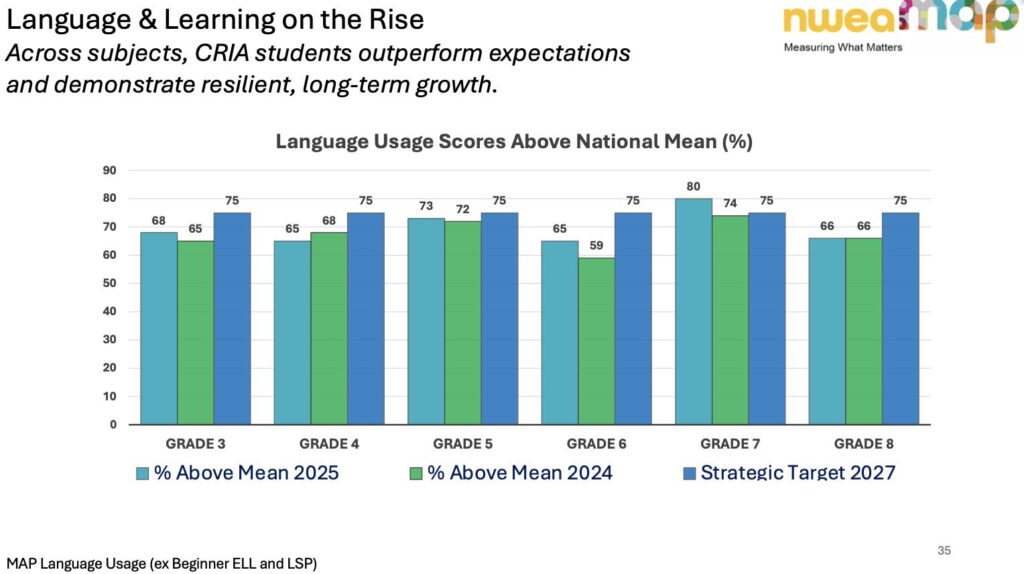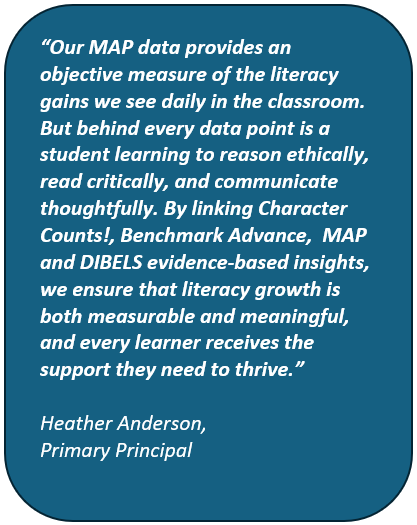How CRIA combines moral formation with measurable literacy growth through Character Counts!, Benchmark reading, and MAP assessments.
At Costa Rica International Academy, we believe that literacy and character grow together. Every story a student reads not only builds comprehension—it shapes conscience. Our reading program unites three benchmarks of educational excellence:
moral character, proven literacy instruction, and measurable evidence of growth.
🌿 Virtue at the Heart of Learning
CRIA’s Character Counts! program is more than a behavior framework; it’s a moral vocabulary drawn from timeless virtues—honesty, diligence, justice, compassion, and civic responsibility. These qualities echo through our Benchmark reading lessons, where literature becomes a space to explore empathy, fairness, and moral courage.
Each grade’s reading selections, from— The Boy Who Cried Wolf to The Lion and the Mouse—illustrate human choices that mirror our six pillars:
Trustworthiness, Respect, Responsibility, Fairness, Caring, and Citizenship.
Students learn to ask: What virtue was practiced here? How does this lesson apply to my life?
📚 Evidence That Reading Growth Lasts
CRIA’s academic rigor is matched by our commitment to measurable progress. Through NWEA’s MAP (Measures of Academic Progress) assessments—used by over 14 million students in 23,000 schools across 145 countries—we track each learner’s reading growth across time and global benchmarks.
This ensures that CRIA students are not only developing strong moral literacy but also achieving world-class academic results.
Reading Growth That Lasts
CRIA students consistently perform well above global norms in reading comprehension.

MAP Reading (excluding beginner ELL and LSP students): CRIA students continue to outperform the NWEA international mean across all grades, with the majority exceeding the 60th–75th percentile range.
Language and Learning on the Rise
The same strength appears in language usage and writing, reflecting both conceptual understanding and expressive skill.

Across subjects, CRIA students show resilient, long-term growth that compounds over time—evidence of strong instruction, language immersion, and a growth mindset culture.
🧭 How Evidence Drives Personalization
In addition to MAP assessments, DIBELS (Dynamic Indicators of Basic Early Literacy Skills) is a series of short, one-minute assessments that measure students’ development in key areas of early literacy such as phonemic awareness, phonics, and fluency. The data helps teachers identify student needs early and provide targeted instruction to strengthen foundational reading skills.
MAP and DIBEL data provides detailed insights for every CRIA student:
- Early Identification: Teachers spot skill gaps and strengths quickly.
- Targeted Instruction: Benchmark reading groups are leveled using precise comprehension data.
- Growth Over Time: Each child has an individualized literacy growth chart, showing year-to-year progress above global averages.
Our system fosters a growth mindset by helping students view learning as a process of continuous improvement, not fixed ability.
MAP results celebrate growth, effort, and progress—empowering each learner to see challenges as opportunities and to take ownership of their learning journey. At the same time, CRIA aims to instill a lifelong passion for reading for both pleasure and purpose, so that students read not only to succeed academically but also to explore ideas, empathy, and imagination beyond the classroom.
✨ The CRIA Difference 
📘 Character Counts! — Teaches moral reasoning and ethical language.
📖 Benchmark Reading — Provides the narrative foundation for literacy and empathy.
🌍 MAP Assessments — Supply the global evidence that learning lasts.
🔤 DIBELS — Offers quick, research-based measures of early literacy skills, helping teachers identify needs early and strengthen reading foundations.
Together, they form a holistic framework where intellect and virtue reinforce one another—preparing students to think critically, act compassionately, and lead responsibly.
At CRIA, character counts—and it shows in the data.

